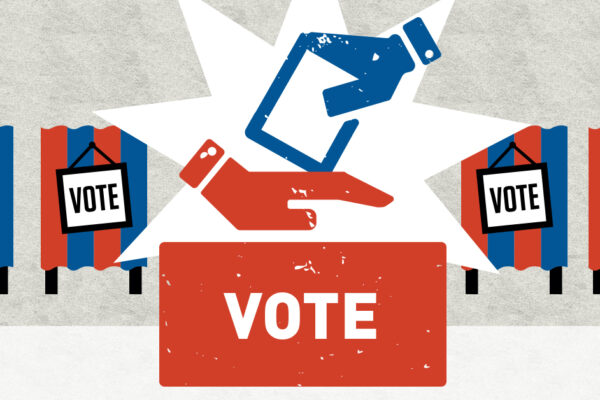In 2011, now disgraced former Secretary of State Dianna Duran stood before the NM legislature and dropped a bombshell. Duran claimed in open testimony that she possessed evidence that 117 foreign nationals were registered to vote and that 37 had fraudulently cast ballots in a New Mexico election. These records, she maintained, showed that New Mexico’s electoral process was infected with a “culture of corruption.”
Not only were these revelations suspiciously well-timed to bolster Governor Martinez’s pet Voter ID legislation, they threatened the very integrity of our democratic institutions by undermining public confidence in our state’s electoral process. The ACLU of New Mexico immediately filed a public records request demanding that Duran substantiate these serious allegations.
We got nothing. Duran refused to produce the evidence she claimed she had, instead releasing documents so heavily redacted they were rendered useless. The ACLU of New Mexico filed an open records lawsuit, which ultimately forced Duran to admit that she had no real evidence to support her claims of voter fraud. A district court judge ordered the state to pay nearly $87,000 in attorney fees in 2014.
Though Duran appealed, this past April the New Mexico State Court of Appeals upheld the 2014 District Court Opinion and ordered the state to pay tens of thousands in additional fees accrued in the appeal. More than a year after the court’s final judgement, the Secretary of State’s office settled the final bill a few weeks ago to the tune of $125,000.
$125,000 is a stiff price for New Mexicans to pay for an elected official’s dishonesty. We hope it sends a strong message to politicians like Martinez and Duran that lack of transparency comes at a cost. But false claims of voter fraud threaten much more than our wallets. They threaten our constitutional right to vote and our ability to participate in the democratic process.
False claims of voter fraud threaten much more than our wallets. They threaten our constitutional right to vote and our ability to participate in the democratic process.
Many states and municipalities across our country have already enacted voter suppression laws that require voters to show a narrow set of IDs or implement unnecessary cuts to early voting. These restrictive laws can make it extraordinarily difficult for people of color, the elderly, low-income voters, students, and people with disabilities to access the ballot.
While it is often assumed that all Americans possess a photo ID, the reality is that millions of Americans lack the narrow category of permissible IDs under these laws often because they cannot afford the costs. This has the effect of excluding lower-income voters from our democracy. Cuts to early voting have particularly negative effects on voters of color, who tend to use early voting periods more frequently, and students, who tend to be in class during regular polling hours. Other discriminatory laws allow for purges of voter rolls and restrictions on third-party voting.
As we put the Duran case to rest, we reflect on how absolutely essential it is that we remain vigilant about ongoing threats to our democracy. In the wake of the United States presidential election, Trump has made a series of explosive and unsubstantiated claims of national-wide voter fraud much like Duran did six years ago. Just this past month, he signed an executive order creating a commission on voter fraud and elections which is headed by Kansas Secretary of State Kris Kobach, a Duran contemporary who was the architect of Kansas’s draconian voter suppression laws.
In light of these troubling developments on the national stage, our victory over Duran’s attempt to rig the system through voter suppression stands as an example of how we can fight back and win against election day bullies. A healthy democracy requires that all citizens are able to and encouraged to vote, not just a privileged few who are politically convenient to those in power.

